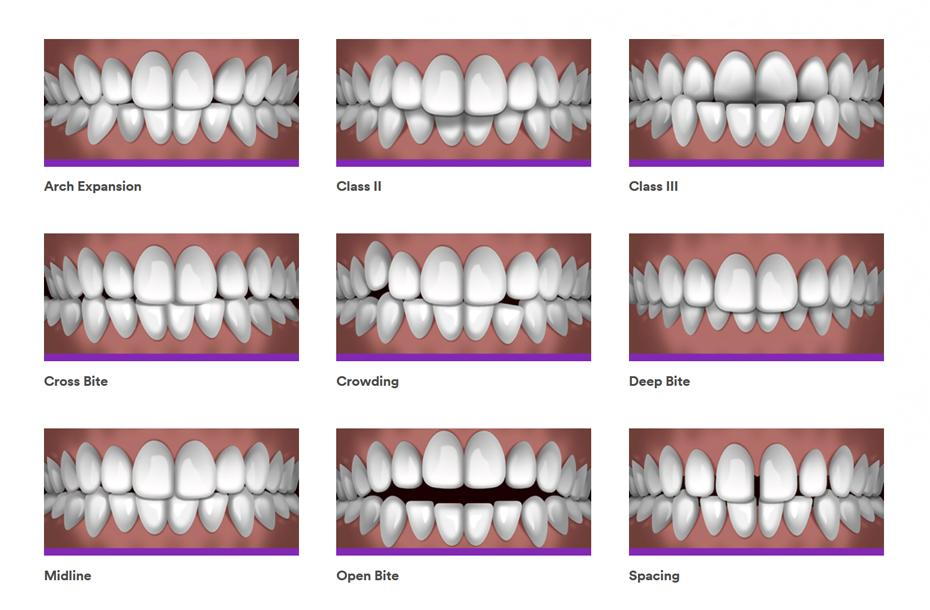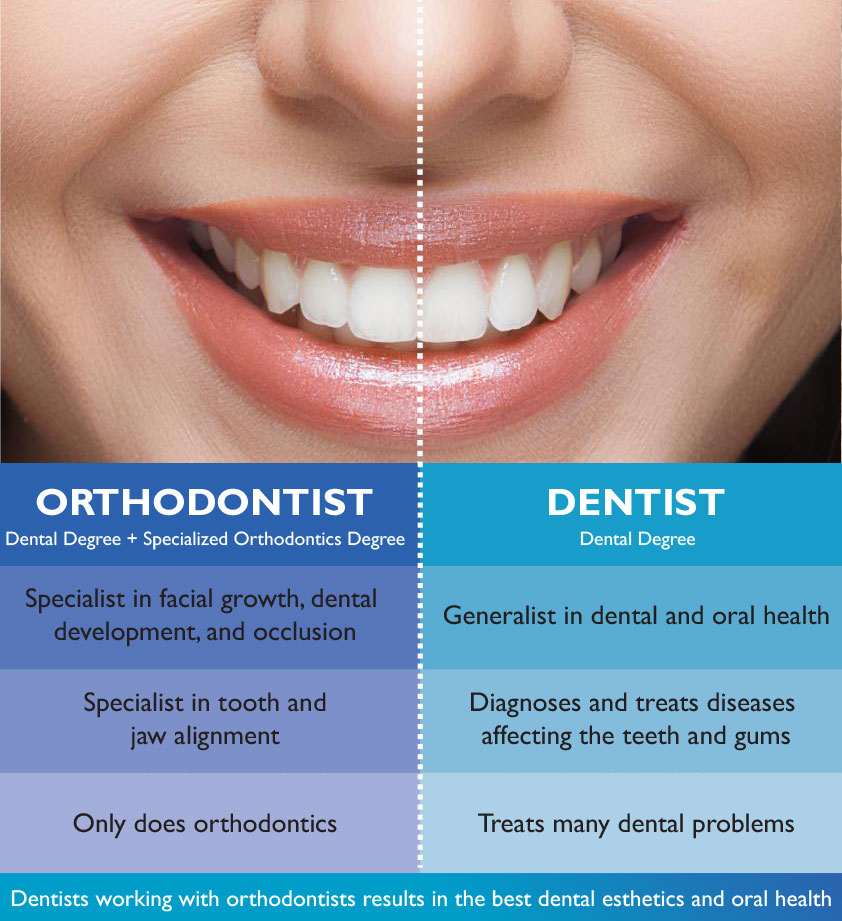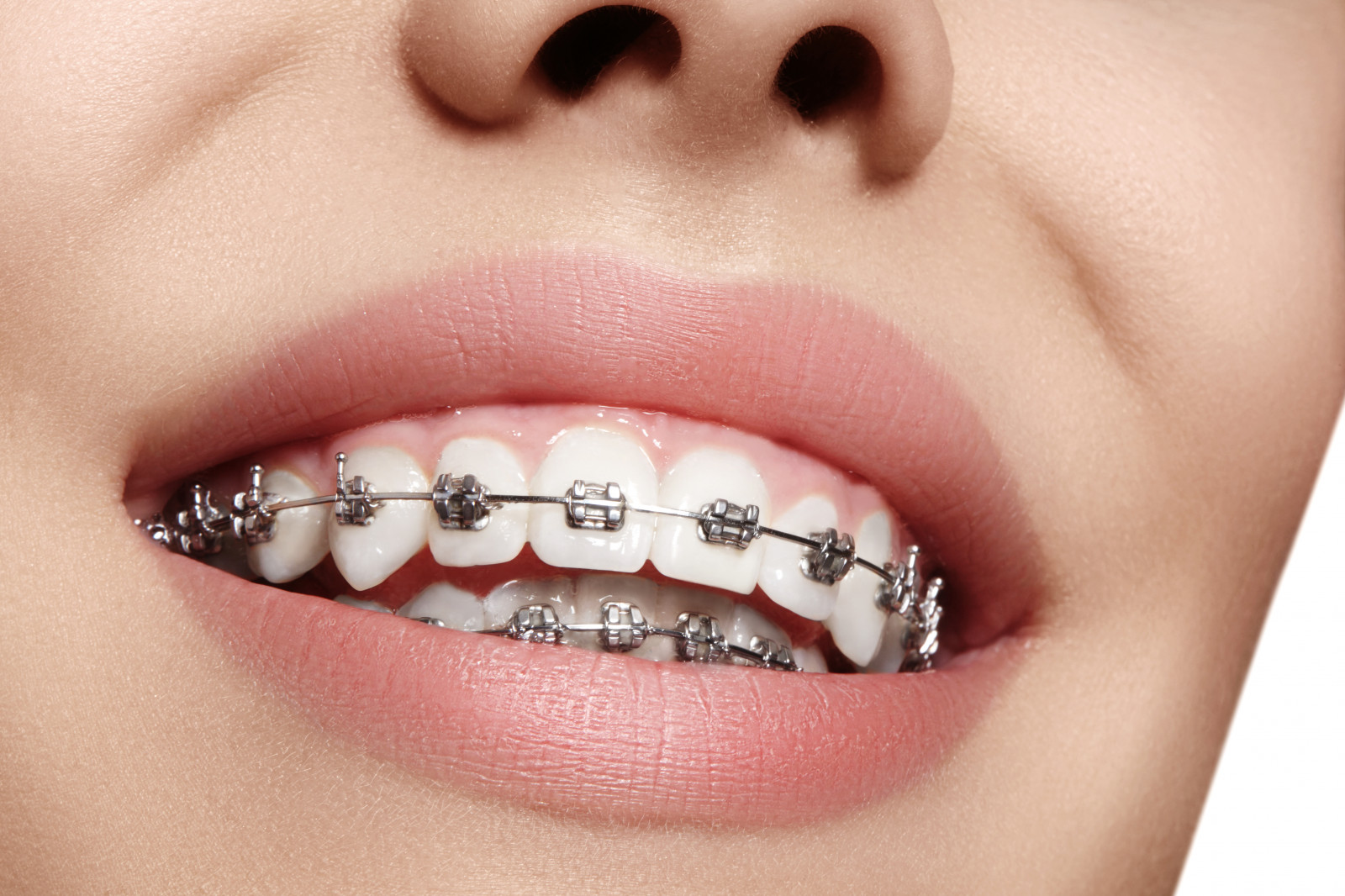Getting My Causey Orthodontics To Work
Getting My Causey Orthodontics To Work
Blog Article
Causey Orthodontics Fundamentals Explained
Table of ContentsGetting My Causey Orthodontics To WorkSee This Report on Causey OrthodonticsFascination About Causey OrthodonticsThe Main Principles Of Causey Orthodontics Not known Details About Causey Orthodontics A Biased View of Causey OrthodonticsThe Facts About Causey Orthodontics Revealed
What is the difference between a dental expert and an orthodontist? All dental experts, including orthodontists, deal with the teeth, periodontals, jaw and nerves.
Orthodontists and dental experts both offer oral treatment for people. Orthodontists can operate in an oral office and supply the same therapies as various other dentists. You can believe of both physicians who deal with gum tissue and teeth issues. The main difference is that becoming an orthodontist calls for a particular specialty in dealing with the misalignment of the teeth and jaw.
The Best Strategy To Use For Causey Orthodontics
An orthodontist is a dental professional that has actually gone through training to specialize in the medical diagnosis, prevention and treatment of abnormalities in the jaw and teeth. They can likewise identify potential troubles in teeth alignment that may develop when problems are left neglected (affordable orthodontist near me).
This includes all the essential education to come to be a general dental practitioner. According to the American Student Dental Association (ASDA), it indicates you will need to have either a Medical professional of Medicine in Dentistry (DMD) or a Doctor of Dental Surgery (DDS). To put it simply, orthodontists need to finish oral college and after that get an orthodontics specialized education and learning.
Some orthodontists also obtain their masters in craniofacial biology. best orthodontist near me (https://www.theverge.com/users/causeyortho7). Several dental colleges supply limited orthopedic training and guideline, which is why basic dental professionals need to visit orthodontic school after graduation. Orthodontic residency programs offer intensive training for this kind of oral specialization. These programs concentrate on two specific areas or disciplines: Dentofacial Orthopedics: This study concentrates on directing teeth and jaw growth.
What Does Causey Orthodontics Mean?

 These consist of apparatus such as braces, retainers and Invisalign. So, what does an orthodontist do, and what do they focus on? The total goal of an orthodontist is to improve an individual's bite. Not every person is born with straight teeth, and an orthodontist will make certain that patients get evenly spaced straight teeth.
These consist of apparatus such as braces, retainers and Invisalign. So, what does an orthodontist do, and what do they focus on? The total goal of an orthodontist is to improve an individual's bite. Not every person is born with straight teeth, and an orthodontist will make certain that patients get evenly spaced straight teeth.
Get This Report on Causey Orthodontics
The American Organization of Orthodontists recommends your first check up by age 7. You'll need to see your orthodontist if you have a misalignment in your teeth, likewise called malocclusion. If you discover irregular bite patterns, a slightly twisted jaw, or when your teeth are overcrowded, you will likely require orthodontic therapy.
At Advanced Orthodontics, we offer individuals with a all natural therapy experience. On top of that, we provide flexible treatment schedules, flexible repayment choices and an enjoyable, delightful experience. Telephone call ( 480) 357-4900 today for additional information and schedule a visit.
An orthodontist is a dentist trained to diagnose, avoid, and treat teeth and jaw irregularities. They correct existing problems and are educated to determine issues that may establish in the future. Orthodontists function with people of every ages, from youngsters to adults. Individuals frequently associate an excellent smile with health.
The Main Principles Of Causey Orthodontics
Malocclusion, or misaligned teeth, can bring about dental concerns, consisting of dental caries, gum condition, and hard or excruciating chewing. However not every person is birthed with straight teeth. If you have a bad bite or huge rooms between your teeth, you may want to consult a dental practitioner focusing on orthodontic care.
(Photo Credit Score: DigitalVision/Getty Images) Orthodontists use fixed and removable dental gadgets, like dental braces, retainers, and bands, to transform the position of teeth in your mouth. Orthodontic therapy is for dental abnormalities, including: Jagged teethBite troubles, like an overbite or an underbiteCrowded teeth or teeth that are as well much apartJaw misalignmentThe objective of orthodontic treatment is to enhance your bite.
The Definitive Guide to Causey Orthodontics

All orthodontists are dental experts, but not all dental experts are orthodontists. Orthodontic residency programs supply extensive, concentrated direction for oral experts. They concentrate on two areas: How to appropriately and securely move teeth Exactly how to appropriately lead growth in the teeth, jaw, and faceOnce an orthodontist has finished training, they have the option to come to be board licensed.
Malocclusion leads to tooth overcrowding, an askew jaw, or irregular bite patterns. Malocclusion is usually treated with: Your orthodontist affixes metal, ceramic, or plastic square bonds to your teeth.
More About Causey Orthodontics
If you have just minor malocclusion, you might have the ability to utilize clear dental braces, called aligners, rather than standard braces. Some people require a headgear to assist move teeth into line with stress from outside the mouth. After dental braces or aligners, you'll need to put on a retainer. A retainer is a custom tool that keeps your teeth in area.
Report this page